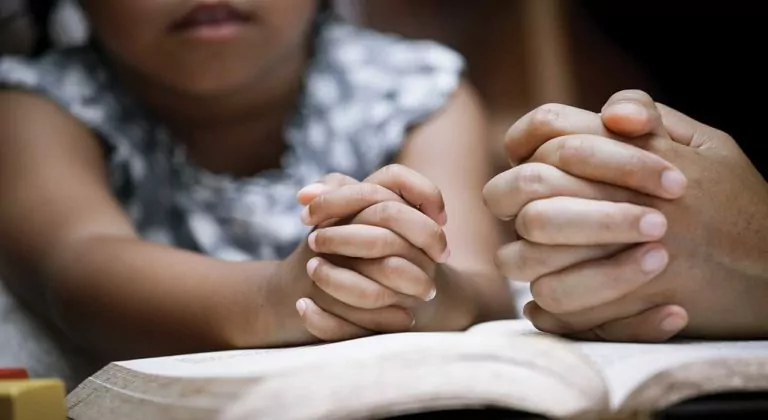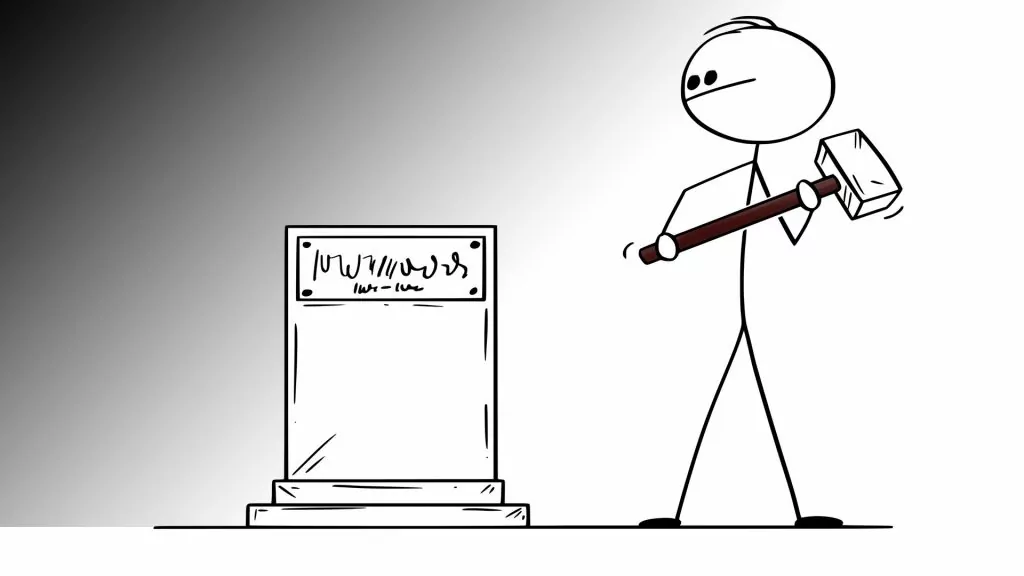A friend who was adopting two toddlers asked two of my adult children how we did our family devotions and what they appreciated about them. To my horror, my children described how “most of the time” they just complied as expected – singing, being quiet, and looking as if they were listening intently. They added that they had pretty much sat through church services the same way. There I sat, thinking that we had done a “good job” overall, and discovering that the kids were often just tuning it all out and biding their time until they were freed.
I shouldn’t have been surprised. Many parents, including us, remember the fruitful times of good singing, contemplation, long discussions, and prayer. But we can also remember flying through the format – bing, bang, bong – done, only because we were supposed to. If the dinner conversation unfortunately ended up including arguments, or sibling rivalry, one of the sinful selves may even have shouted: “Settle down – we have to read the BIBLE!”
PURPOSE
Was it still worthwhile to “read and pray”? Yes. But it could have been done better. Even though our kids have all grown and established their own homes, this conversation gave me reason to think about how we might have improved those times, and might do so even now.
When we’re setting aside any regular, large amount of time for something, we should consider the why. What’s the purpose of setting aside time for Bible reading time, or devotions? Why do we do them? The answer is found repeatedly through the Bible. It coincides with the very purpose for which we were created: to glorify God.
As David wrote in Ps. 63:
… earnestly I seek you;
my soul thirsts for you.
My flesh faints for you,
as in a dry and weary land where there is no water.
So I have looked upon you in the sanctuary,
beholding your power and glory.
Because your steadfast love is better than life,
my lips will praise you.
So I will bless you as long as I live;
in your name I will lift up my hands.
As great as God is, we can and do regularly overlook Him. So, in Colossians 3:1-3, the Apostle Paul certainly encourages us to really think on what God has all done for us:
If then you have been raised with Christ, seek the things that are above, where Christ is, seated at the right hand of God. Set your minds on things that are above, not on things that are on earth. For you have died, and your life is hidden with Christ in God.
Do we have food to eat? A roof over our heads? Breath? Acts 17:25 tells us that “he himself gives to all mankind life and breath and everything.” The purpose of reading God’s Word and praying at a meal or any other time ought to be to take some time to reflect on the fact that He continues to do so!
SUGGESTIONS
If our family devotions aren’t going the way we’d like them to, it can be very challenging to change our current patterns. But we are told in Hebrews 10:24 to “consider how to stir up one another to love and good works,” so let’s take a look at four questions a family can think through and talk about:
1 – How do we really teach love for God in our Bible reading sessions and prayer?
We ourselves must first love God and express that love and honor to God verbally, and by our actions throughout the day. If we’re not patient and we shout angrily over small matters (perhaps even at the meal!), we won’t teach our children to use self-control. And if we won’t ask forgiveness, we won’t teach them to do so. Family devotions should demonstrate that love of God. We must genuinely glorify Him when we pray, not just rattle off words.
2 – If we rush through “just to do it” – is it still worthwhile?
How useful is it to shout, “Settle down – we have to read the BIBLE!”? On the other hand, if we wait until life is perfect, we’ll never read or pray, because we sinners do get out of sorts. But how much better it could be, if we teach our children by example to quiet themselves and then read a short amount of Scripture and pray for forgiveness and strength. That’s exactly what is needed to get everyone back on track.
Consider letting young children leave the table when they are finished and then re-convening in the living room for devotions. This can provide a helpful transition, instead of taxing their patience and making everyone want to rush through and just get it over with.
An alternate idea might be to use pre-bedtime moments as a time when they will be happier to give attention to Bible stories and learning to pray. In this case, it might be the parents who must stay patient if they are eager to have their parental duties over for the night.
3 – Should we incorporate the children into reading the text and leading in prayer?
A rote prayer may or may not be a way to teach reverence for God. There are two kinds, actually. Kids might learn a short poem-prayer which they might pray sincerely or might say it robotically or in a goofy manner so as to make their siblings laugh. They will not initially understand the reverence that our Lord deserves. But we want them to learn that this is an important activity that is not just for parents. So to learn by doing, let them take a turn as soon as they can speak, read and sing. But let them know that they must also consider to Whom they are speaking or singing.
4 – How might we vary our prayers?
Adults also often fall into such a pattern that we pray our own rote prayer as well. We must take care not to become robotic. How many times have you heard a head of household repeat the same words in the same cadence and wondered if much thought went into that prayer?
Having a prayer list of family, friends, and church members to go through 1 or 2 at a time on a monthly basis can help to keep prayers “fresh.” The children can add requests and items of thanksgiving as well.
Using the prayers in the Book of Praise or in the Book of Common Prayer can aid us in saying words that we mean but just haven’t initially thought of. It can be helpful to use a prayer that Calvin or Luther or another Christian has written because it moves us out of our usual comfort zone. Some people think that written prayers aren’t as meaningful because we ourselves didn’t create them. But if our own prayers become rote and robotic – looking to someone else’s carefully thought-out prayers can add fresh perspective and remind us of previously unmentioned requests and items for thanksgiving.
Praying part or all of a Psalm or using a New Testament passage is also a stellar idea.
TEACH THEM DILIGENTLY
Deuteronomy 6:6-9 teaches us to tell our children about the Lord at all times.
… these words that I command you today shall be on your heart. You shall teach them diligently to your children, and shall talk of them when you sit in your house, and when you walk by the way, and when you lie down, and when you rise. You shall bind them as a sign on your hand, and they shall be as frontlets between your eyes. You shall write them on the doorposts of your house and on your gates.
Throughout the day, we should read God’s Word and pray on our own, that we might have the wisdom and patience and love to lead our family members to do the same. We are the chief example that our children will follow. May our souls thirst for God as in a dry and weary land where there is no water!
A version of this article first appeared in the Sept/Oct 2017 issue.













